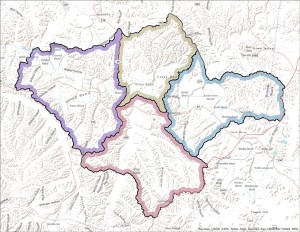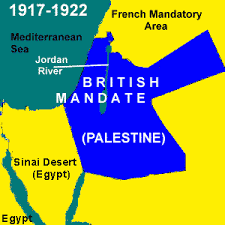An interesting question was posed to me a few months back. “If all men are created equal, are borders moral?” If we are all equal regardless of race, ethnicity, sex, religion etc. why should we have countries? Why should only my ‘tribe’ inhabit a piece of land defined by lines on a map? I confess, I don’t know the answer. What I can see is a long term trend over the last few centuries that might mean countries as we know them, cease to exist at some time in the future.
 The drivers are many. Here are some of the major ones.
The drivers are many. Here are some of the major ones.
Transport has caused interaction between ethnic groups that could never have occurred a hundred, or two hundred years ago. We see how other people live. We see their values and culture. As we take up the parts we like, our culture and values are diluted. An obvious example is food. The ethnic mix of food today is a blend of many countries.
Television and radio allow communication between ‘tribes’ to communicate different views and lifestyles. They can display how a particular group of people live, or put forward views on politics, religion and any social perspective.
The Internet provides a way for people of any origin to communicate with others. There are restrictions in some countries but these gradually break down and people find ways around them. Nothing like talking to someone in another land to get a feeling for how they live. It also provides educational opportunities which are only now beginning to become evident. They range from promotion of different views of the world, to basics of reading, writing and maths.
But migration is the latest major disruption to how the world has worked. Countries like Australia and the USA happened because of migration, but the process is speeding up. Europe is taking millions of migrants each year. It is no longer a case of take a few people and integrate them into society. It is to take a lot of people and swamp a society.
Take the following example that has happened over 100 years. Israel.
 Palestine was under Turkish rule from 1517 to 1917. During the First World War, the British united the Arabic nations to fight the Turks in return for creation of a combined Arabic state. At the same time a secret agreement called the Sykes-Picot agreement divided the area into zones of influence between Britain and France. In the middle of all this was a commitment to a Jewish state. The Arabs were duped.
Palestine was under Turkish rule from 1517 to 1917. During the First World War, the British united the Arabic nations to fight the Turks in return for creation of a combined Arabic state. At the same time a secret agreement called the Sykes-Picot agreement divided the area into zones of influence between Britain and France. In the middle of all this was a commitment to a Jewish state. The Arabs were duped.
Most Jews supported the Germans because they were fighting the Russians. Half the Jewish population was in Russia, and was being persecuted. Britain thought by offering a homeland to the Jews, they would gain their support. In particular they thought that there existed “Jewish power” over the Ottoman Empire’s Young Turks movement. They also wanted support from America’s Jewish population.
In 1917 the British Foreign Minister, Lord Balfour sent a letter to the Jewish community known as the Balfour Declaration. It said the British government would look favourably on the establishment of a Jewish nation in Palestine. All this was confirmed by the League of Nations and came into effect in 1923.
Jewish migration was in waves called “allyah”:
- First Allyah – 1882-1903 – 35,000
- Second Allyah – 1907-1914 – 20,000
- Third Allyah – 1919-1923 – 40,000
- Fourth Allyah – 1924-1929 – 82,000
- Fifth Allyah – 1929-1939 – 250,000
- War years – 1939-1945 – The British tried to limit it to 75,000 per year (450,000 over 6 years) but there was much illegal immigration so the numbers are not clear.
- 1948-1953 – 723,000
In 1922 the population of all Palestine, which included the area to become Israel, was made up of 78% Muslim, 11% Jewish and 10% Christian. Today it is 47% Muslim, 50% Jewish and 2% Christian. In Israel, the number is 75% Jewish. This is out of a population of about 8 million.
So migration has changed an Arabic nation called Palestine into a nation where half the people no longer view themselves as Palestinians. In fact they are at war with Palestine. They have their own religion, language and culture. They have taken a large chunk of Palestine, called it Israel, and made it a predominantly Jewish area. All this happened in under 100 years.
This seems to be just another form of colonisation. Be it the British invading Australia, or the Portuguese invading Brazil. The difference is it used to take centuries to happen. Today it can happen in decades.
What may happen in the future can never be predicted, but we can see the trends and guess where that might lead. Migration can happen in waves. The first wave arrive and get established. Family, friends and the more adventurous will follow. It can expand exponentially. So the refugees into Europe from places like Syria are the first wave. Behind them will be more who see the better life on offer in Europe. How could this not be an improvement on being killed in the crossfire between fanatical armies.
 Could an Israel happen in Europe? Maybe the larger populations like Germany could absorb the culture shock of mass migration with little change. Smaller countries may not. Once a smaller country had a critical mass of immigrants from a particular group, they would attract more immigration, and the country might be powerless to resist. This could lead to a breakdown in government services, taxes, education and marginalisation of the traditional population. In some western countries, there are already enclaves where the traditional population has been replaced by a migrant population and a different set of rules apply.
Could an Israel happen in Europe? Maybe the larger populations like Germany could absorb the culture shock of mass migration with little change. Smaller countries may not. Once a smaller country had a critical mass of immigrants from a particular group, they would attract more immigration, and the country might be powerless to resist. This could lead to a breakdown in government services, taxes, education and marginalisation of the traditional population. In some western countries, there are already enclaves where the traditional population has been replaced by a migrant population and a different set of rules apply.
Maybe we are, as the song says, a great big melting pot. Maybe we will become a homogenous group where there is little difference between one country and another. On a recent visit to Canada, I found the differences between Sydney and Toronto were very small. The climate and geography may be different but culturally they are very similar.
Which brings me back to the question of the morality of borders. What divides us now are things like tribal values, education, culture, religion and politics. As we start to move closer together in all these things, the concept of borders becomes less relevant. The concept of a religious and ethnic takeover of a region, as was Israel’s takeover of Palestine, could end up being seen as colonisation. Not something to be condoned.
The mobility of immigrants might mean any despotic government would cause the population to walk away. Half Syria already has. Just pack your few belongings and head for a better life somewhere else. A sort of self levelling management of people by government. Bad government they leave; good government they arrive.
How we now see the difference between states in a country, may eventually be the same as the differences between countries.